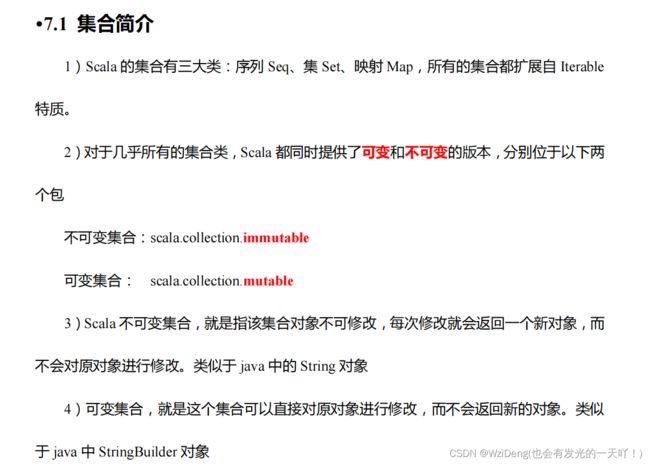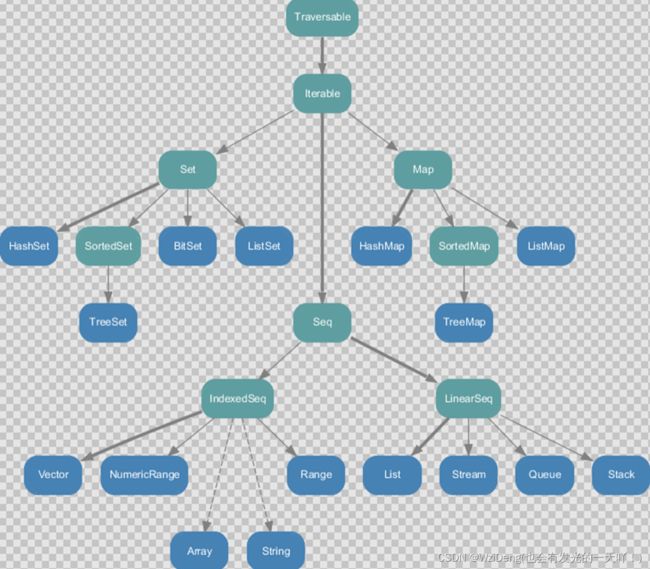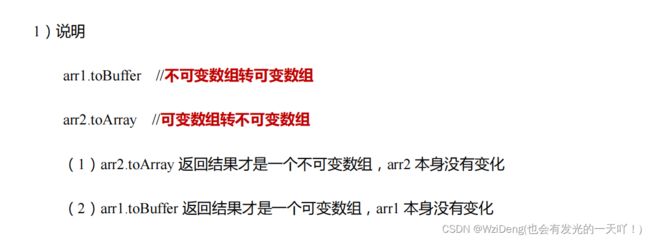- Flink:处理有界流数据的wordcount
小易学编程
flink大数据
数据源:helloworldhelloflinkhelloscala有界流:packagechapter02importorg.apache.flink.streaming.api.scala._/***ClassName:BoundedStreamWordCount*Package:chapter02*Description:**@Author小易日拱一卒*@Create2025-06-272:
- 微信推客系统小程序开发上线全攻略:从源码部署到社交裂变运营
v_qutudy
推客系统开发推客小程序
一、前言:为什么选择微信推客系统?在社交电商的浪潮中,微信推客系统凭借"自用省钱、分享赚钱"的裂变模式,成为商家低成本获客的利器。本文将深度解析如何从零开发一套支持独立部署的推客小程序,涵盖技术架构、源码解析、部署实战及运营策略,助力开发者快速搭建高转化率的社交电商系统。二、技术架构设计:打造稳定可扩展的推客系统1.整体架构分层前后端分离架构前端:采用Taro跨端框架开发微信小程序端,适配多端展示
- 新一代会员分销返利小程序,聚合cps系统独立部署,对接20多个CPA/CPS资源
+V:ywxs5787
小程序开发cps分销软件开发小程序uniapp微信小程序
技术栈前端:vue3+uniapp后端:PHP数据库:MySQL一、系统介绍PHP部分代码'value1','param2'=>'value2',//添加其他参数];//发送HTTPPOST请求$ch=curl_init();curl_setopt($ch,CURLOPT_URL,$url);curl_setopt($ch,CURLOPT_POST,true);curl_setopt($ch,CU
- Uniapp微信小程序开发:后端服务器搭建指南(语言选择+部署方案)
目录前言:Uniapp+微信小程序的架构模式️后端服务器的作用后端语言选择(Node.js/Java/Python/PHP/Go)☁️服务器部署方案(云服务器vsServerless)实战:如何连接Uniapp与后端API安全优化:HTTPS、JWT、接口鉴权数据库选择(MySQL、MongoDB、云数据库)总结&最佳实践1.前言:Uniapp+微信小程序的架构模式Uniapp是一个基于Vue.j
- 关于Ajax的学习笔记
秋也凉
ajax学习笔记
Ajax概念:是一门使用了js语言,可以使用于Javaweb,实现前端代码和后端代码连结的的一种异步同步(不需要等待服务器相应,就能够发送第二次请求)的一种技术,它主要用于网页内容的局部刷新,列如验证码、导航栏的刷新等。实现步骤1.导入jQuery(一种框架,Ajax是JQuery的一种方法)文件——例如:写在jsp页面的标签里面。2.在jsp页面写一个函数,然后在函数里面调用ajax方法,aja
- 【Grafana】Prometheus指标可视化Grafana,手把手教你如何自定义图形
景天科技苑
grafanaprometheusprometheus可视化grafana自定义图形手撕grafana自定义监控图形
✨✨欢迎大家来到景天科技苑✨✨养成好习惯,先赞后看哦~作者简介:景天科技苑《头衔》:大厂架构师,华为云开发者社区专家博主,阿里云开发者社区专家博主,CSDN全栈领域优质创作者,掘金优秀博主,51CTO博客专家等。《博客》:Python全栈,前后端开发,小程序开发,人工智能,js逆向,App逆向,网络系统安全,数据分析,Django,fastapi,flask等框架,云原生k8s,Prometheu
- Grafana Loki Helm Chart从2.x升级到3.0的完整指南
芮川琨Jack
GrafanaLokiHelmChart从2.x升级到3.0的完整指南前言GrafanaLoki3.0版本的HelmChart是一个重要的里程碑版本,它整合了之前两个独立的Chart(loki和loki-simple-scalable)为一个统一的解决方案。本文将详细介绍如何从2.x版本平滑升级到3.0版本,帮助用户理解升级过程中的关键变化和注意事项。升级前的准备工作在进行任何升级操作前,请务必:
- ABP VNext + Playwright E2E:前后端一体化自动化测试
Kookoos
AbpvNext.netABPvNext自动化PlaywrightE2E
ABPVNext+PlaywrightE2E:前后端一体化自动化测试目录ABPVNext+PlaywrightE2E:前后端一体化自动化测试一、引言✨TL;DR背景与动机二、环境与依赖三、项目结构示例四、安装与初始化Playwright五、测试基类与数据隔离1.自定义TestWebApplicationFactory2.事务隔离六、测试流程图七、登录流程测试八、CRUD操作与API拦截✂️九、并行
- 小程序源码:全新超火的微信小说小程序源码-自带采集带安装教程-多玩法安装简单
哔咔app下载入口
微信小程序源码教程小程序源码小程序微信微信小程序
下面给大家带来一款最近超火的一款微信小说小程序源码本套源码自带采集,拿到手的时候没有安装教程不过小编在测试的时候给大家把安装教程给补上了安装教程:PHP选择5.6以上的版本上传我们的后端解压伪静态选择thinkphp修改数据库链接文件config/database.php然后我们导入数据库后台点击小程序把你的小程序该设置的设置就可以了小说的话就点击数据采集然后采集就可以了小程序首页轮播推荐和首页分
- python的pywebview库结合Flask和waitress开发桌面应用程序简介
czliutz
python笔记pythonflask开发语言
pywebview的用途与特点用途pywebview是一个轻量级Python库,用于创建桌面应用程序(GUI)。它通过嵌入Web浏览器组件(如Windows的Edge/IE、macOS的WebKit、Linux的GTKWebKit),允许开发者使用HTML/CSS/JavaScript构建界面,并用Python处理后端逻辑。这种方式结合了Web技术的灵活性和Python的强大功能,适合快速开发跨平
- ReactJS与Node.js:前后端整合之道
背景简介在当前的Web开发领域中,ReactJS作为前端框架的佼佼者,其组件化和声明式的编程方式广受开发者喜爱。而Node.js作为后端技术的热门选择,也因其实时、非阻塞I/O的特性而大放异彩。当ReactJS与Node.js结合时,我们可以构建出全栈的应用程序,实现从前端到后端的无缝对接。本文将从ReactJS与FacebookAPI的集成讲起,逐步过渡到使用Node.js来构建React应用的
- RDS Proxy提高数据库可扩展性可用性GenAI
taibaili2023
AWS
亚马逊云科技-RDSProxy改善数据库可扩展性GenAI关键字:[yt,AmazonRDSProxy,DatabaseScalability,RdsProxy,ConnectionPooling,SeamlessFailover,IamAuthentication]本文字数:400,阅读完需:2分钟导读演讲者介绍了”亚马逊云科技-RDSProxy改善数据库可扩展性GenAI”。在演讲中,他阐释了
- [Python] -项目实战8- 构建一个简单的 Todo List Web 应用(Flask)
踏雪无痕老爷子
Pythonpython开发语言
一、为什么选Flask?轻量上手快:仅需几行代码就能跑一个可用的Web应用。灵活扩展:可接入数据库、身份认证、前端框架等。教育性强:涵盖前后端交互基础,适合入门全栈开发。二、项目结构建议flask_todo/├──app.py├──templates/│└──index.html├──static/│└──style.css├──todo.db└──requirements.txtapp.py:后
- B/S 架构通信原理详解
步行cgn
JavaWeb架构
B/S架构通信原理详解一、核心架构Browser/Server(浏览器/服务器)模型:前端:浏览器作为统一客户端(Chrome/Firefox/Edge等)后端:服务器处理业务逻辑+数据存储(Nginx/Apache/Tomcat等)通信协议:基于HTTP/HTTPS的请求-响应模型二、完整通信流程sequenceDiagramparticipant用户participant浏览器particip
- LVS----DR模式配置
KellenKellenHao
服务器运维lvsDR模式
LVS-DR模式配置通过负载均衡器配置:将负载均衡器的IP地址设置为Web节点的虚拟IP(VIP)地址。这样,客户端的请求将发送到负载均衡器的VIP地址。客户端请求到达负载均衡器:当客户端发送请求到负载均衡器的VIP地址时,负载均衡器会接收到请求。负载均衡器将请求转发到后端Web节点:负载均衡器将请求转发到其中一个后端Web节点。它通过修改目标IP地址为相应的Web节点的IP地址,并修改源IP地址
- LVS-----TUN模式配置
KellenKellenHao
服务器linux网络LVSTUN模式
一、实验环境主机名称ip角色lvs-tun192.168.100.100lvs调度器web1192.168.100.1后端web服务器1web2192.168.100.2后端web服务器2client192.168.100.200客户端二、搭建lvs调度器的TUN模式1、lvs-tun调度器配置#清除DR模式的策略ipvsadm-C#查看策略ipvsadm-L[root@lvs-tun~]#ipv
- 基于SpringBoot+Vue的在线学习系统的设计与实现
一、项目背景与选题动因随着在线教育的快速发展,传统的教学模式已逐渐无法满足现代学习者“随时随地”获取知识的需求。在线学习平台凭借其强大的可扩展性和资源整合能力,在教育信息化浪潮中日益重要。本项目旨在基于SpringBoot+Vue实现一个结构清晰、功能完善的在线学习系统,满足不同用户角色(学生、教师、管理员)在教学、学习、管理等方面的实际需求。适合学习SpringBoot、Vue前后端分离、权限管
- IM即时通讯源码/im源码基于uniapp框架从0开始设计搭建在线聊天系统
宠友信息
uni-appmysqlspringbootjava小程序
文章目录前言一、确定技术栈二、数据库设计:1.引入库2.使用SpringBoot创建后端项目3.实现WebSocket通信:3.1创建WebSocket配置类:3.2创建ChatWebSocketHandler类:3.3前端WebSocket连接与通信:总结前言随着人社交产品的不断发展,即时通讯聊天这门技术也越来越重要,很多人都开启了学习通讯技术,本文就介绍了即时通讯的基础内容。一、确定技术栈在开
- 从零开发推客小程序系统:完整技术方案与实战经验
wx_ywyy6798
小程序推客小程序开发推客系统开发微信小程序推客小程序推客系统推客分销系统开发
一、推客小程序的市场价值社交电商爆发式增长背景推客模式的优势:低成本获客、用户裂变小程序作为推客系统载体的天然优势二、技术架构设计text1.前端技术栈:-微信小程序原生开发/uni-app跨平台方案-自定义分享组件开发-可视化数据看板实现2.后端技术选型:-Node.js/PHP/JavaSpringBoot等后端框架对比-高性能分销关系链存储方案-佣金结算系统的设计要点3.数据库设计:-用户层
- Android图书借阅系统完整App开发教程(源码+数据库)
本文还有配套的精品资源,点击获取简介:本教程深入介绍了基于Android平台的图书借阅系统App开发过程,涵盖了从UI设计、网络通信到数据库操作的全面实践。项目包含源码和数据库文件,让学生能够通过实际案例学习并掌握Android应用开发的核心技术。本App具有预约借书、书籍评论、图书推荐和逾期提醒等功能,要求开发者熟悉Java语言和Android系统,以及实现后端逻辑和数据存储。此项目是一个宝贵的
- 题解 | #使用join查询找出没有分类的电影id以及名称#
愤怒的小青春
java
58同城java后端一面凉经主流的哈希算法有哪几种?帮闺蜜们找靠谱男票hc多多光彩积云是什么企业,查不到有用信息太抽象了!培训班装公司招聘阿里巴巴前端暑期实习——无语八面挂怎么写自我介绍|自我介绍保姆级教学灵犀互娱客户端一面面经(求过啊)24找运维实习,这简历可行吗拓竹科技测试开发面经(25届暑期实习)分享一波攒了整个秋招的NLP算法岗面经腾讯广告暑期实习面试1、JVM垃圾回收机制2、syncho
- 劝你别瞎自学!2025AI大模型路线图,手把手教你!大模型新人必看,少走三年弯路就靠这篇!
AGI大模型老王
人工智能程序员chatgptAI产品经理大模型AI大模型学习
这两年,大模型从实验室里的高冷研究,走到每个程序员、学生、转行者的聊天框和职业规划表里。几乎每天都有人来问我:"师兄,我是做后端的,能不能转大模型?""我在看一些课程,不知道该学哪些才有用?""我试着搭了个模型,发现全是坑,是不是我不适合?"今天这篇文章,我不打算讲那些泛泛而谈的大模型原理,我就站在一个“老转行人+老程序员+老训练营主理人”的角度,跟你聊聊:大模型怎么转?适合哪些人?哪些方向对新手
- 【hc多多】华为25届实习生招聘 (东莞、北京、成都、西安)
2301_78234743
java
被面试官羞辱。。。快手—Java日常实习组内急招智谱华章前端一面凉经pdd你真是饿了......2024年4月最新腾讯后端校招实习面经概答:面面俱到的考察千亿元宇宙市场,Soul、映客的新动力学3个月后端了嵌入式简历制作简历优化荣耀错过面试是不是没约面机会了?微众银行25届暑期实习招聘正式启动!荣耀错过面试是不是没约面机会了?成都经纬恒润CE视景仿真部成都经纬恒润CE视景仿真部软件实习生是做什么的
- GitHub Jekyll博客本地Win开发环境搭建
GitHubJekyll博客本地Win开发环境搭建标签后端blogjekyll全文链接GitHubJekyll博客本地Win开发环境搭建概述本文详细介绍了在Windows系统上搭建Jekyll博客本地开发环境的完整步骤,为GitHubPages博客开发提供本地预览和调试能力。环境依赖Ruby环境:Jekyll基于Ruby开发,需要先安装Ruby环境开发工具链:需要MSYS2和MINGW开发工具链支
- github jekyll+chirpy主题搭建博客
handsomestWei
后端githubJekyllChirpyGitHubPages博客建站
githubjekyll+chirpy主题搭建博客标签:后端、blog、jekyll全文链接本文简要介绍了如何基于GitHubPages、Jekyll及Chirpy主题搭建个人博客的流程和注意事项。主要内容GitHubPages站点简介可免费搭建个人博客,支持自定义域名,适合静态网站部署。Jekyll简介Jekyll是一个静态博客生成工具,无需数据库,适合部署在GitHub上。提供了相关文档和教程
- 自己开发FT4222上位机软件 - USB转SPI
EE工程师
嵌入式系统python单片机模块测试
写作背景 最近公司有个项目,让开发一个能够同时进行千兆网接收和SPI配置的上位机软件,开发语言不限,所以作者选择Python+PyQt作开发,做嵌入式固件开发的读者可能知道还需要一块USB转SPI的模块才能进行上下位机正常SPI读写,项目团队成员建议模块从淘宝网购买就好,作者经过调研对比,感觉从芯片质量到开发配套上来讲,FTDI的FT4222模块是最优选择。但令作者感到不快的是淘宝商家不提供模块
- Grok网站的后端语言是php和Python2.7
言之。
随笔随笔
老马的Grok模型https://grok.com/#subscribephp语法这里还出现了两个bug后端语言能看到是php和python2.7要说卷还是得看中国的程序员啊,天天就是新技术,赶不上别人就35岁毕业退休
- Visual Autoregressive Modeling: Scalable Image Generation via Next-Scale Prediction
zzfive
生成模型论文阅读kotlin开发语言android
论文链接:VisualAutoregressiveModeling:ScalableImageGenerationviaNext-ScalePrediction文章目录简介预测下一个token自回归模型范式分析VAR详解分词实现细节幂律缩放定律零样本泛化能力结论简介本文提出的视觉自回归建模/VAR这种新范式,其将图像的自回归学习重新定义为从粗到细的“下一个尺度预测”或“下一个分辨率预测”,与常规的
- 全栈开发的现状与未来——机遇与挑战并存
Willin 老王躺平不摆烂
chatgptAIGC程序员创富ecmascriptjavascript
目录全栈开发的现状与未来:机遇与挑战并存1.全栈开发的就业市场现状与趋势1.1当前市场需求与薪资水平1.2行业竞争与公司偏好1.3未来几年发展预测2.全栈开发的技能要求与职业发展2.1核心技能栈:从前端到后端2.2新兴技术:AI与低代码/无代码2.3职业发展路径与晋升空间2.4多元化发展机会3.全栈开发的行业挑战与应对策略3.1主要行业挑战3.2应对策略与建议全栈开发依然充满机遇,市场需求旺盛,薪
- 后端开发:Spring Boot 的分布式缓存方案
大厂资深架构师
SpringBoot开发实战springboot分布式缓存ai
后端开发:SpringBoot的分布式缓存方案关键词:SpringBoot、分布式缓存、Redis、Caffeine、缓存策略、缓存失效摘要:本文深入探讨了在SpringBoot后端开发中分布式缓存方案的相关技术。首先介绍了分布式缓存在现代应用中的重要性及本文的研究范围,接着阐述了核心概念如分布式缓存的原理与架构,详细讲解了常用的核心算法原理及具体操作步骤,包括使用Python代码示例说明。通过数
- redis学习笔记——不仅仅是存取数据
Everyday都不同
returnSourceexpire/delincr/lpush数据库分区redis
最近项目中用到比较多redis,感觉之前对它一直局限于get/set数据的层面。其实作为一个强大的NoSql数据库产品,如果好好利用它,会带来很多意想不到的效果。(因为我搞java,所以就从jedis的角度来补充一点东西吧。PS:不一定全,只是个人理解,不喜勿喷)
1、关于JedisPool.returnSource(Jedis jeids)
这个方法是从red
- SQL性能优化-持续更新中。。。。。。
atongyeye
oraclesql
1 通过ROWID访问表--索引
你可以采用基于ROWID的访问方式情况,提高访问表的效率, , ROWID包含了表中记录的物理位置信息..ORACLE采用索引(INDEX)实现了数据和存放数据的物理位置(ROWID)之间的联系. 通常索引提供了快速访问ROWID的方法,因此那些基于索引列的查询就可以得到性能上的提高.
2 共享SQL语句--相同的sql放入缓存
3 选择最有效率的表
- [JAVA语言]JAVA虚拟机对底层硬件的操控还不完善
comsci
JAVA虚拟机
如果我们用汇编语言编写一个直接读写CPU寄存器的代码段,然后利用这个代码段去控制被操作系统屏蔽的硬件资源,这对于JVM虚拟机显然是不合法的,对操作系统来讲,这样也是不合法的,但是如果是一个工程项目的确需要这样做,合同已经签了,我们又不能够这样做,怎么办呢? 那么一个精通汇编语言的那种X客,是否在这个时候就会发生某种至关重要的作用呢?
&n
- lvs- real
男人50
LVS
#!/bin/bash
#
# Script to start LVS DR real server.
# description: LVS DR real server
#
#. /etc/rc.d/init.d/functions
VIP=10.10.6.252
host='/bin/hostname'
case "$1" in
sta
- 生成公钥和私钥
oloz
DSA安全加密
package com.msserver.core.util;
import java.security.KeyPair;
import java.security.PrivateKey;
import java.security.PublicKey;
import java.security.SecureRandom;
public class SecurityUtil {
- UIView 中加入的cocos2d,背景透明
374016526
cocos2dglClearColor
要点是首先pixelFormat:kEAGLColorFormatRGBA8,必须有alpha层才能透明。然后view设置为透明glView.opaque = NO;[director setOpenGLView:glView];[self.viewController.view setBackgroundColor:[UIColor clearColor]];[self.viewControll
- mysql常用命令
香水浓
mysql
连接数据库
mysql -u troy -ptroy
备份表
mysqldump -u troy -ptroy mm_database mm_user_tbl > user.sql
恢复表(与恢复数据库命令相同)
mysql -u troy -ptroy mm_database < user.sql
备份数据库
mysqldump -u troy -ptroy
- 我的架构经验系列文章 - 后端架构 - 系统层面
agevs
JavaScriptjquerycsshtml5
系统层面:
高可用性
所谓高可用性也就是通过避免单独故障加上快速故障转移实现一旦某台物理服务器出现故障能实现故障快速恢复。一般来说,可以采用两种方式,如果可以做业务可以做负载均衡则通过负载均衡实现集群,然后针对每一台服务器进行监控,一旦发生故障则从集群中移除;如果业务只能有单点入口那么可以通过实现Standby机加上虚拟IP机制,实现Active机在出现故障之后虚拟IP转移到Standby的快速
- 利用ant进行远程tomcat部署
aijuans
tomcat
在javaEE项目中,需要将工程部署到远程服务器上,如果部署的频率比较高,手动部署的方式就比较麻烦,可以利用Ant工具实现快捷的部署。这篇博文详细介绍了ant配置的步骤(http://www.cnblogs.com/GloriousOnion/archive/2012/12/18/2822817.html),但是在tomcat7以上不适用,需要修改配置,具体如下:
1.配置tomcat的用户角色
- 获取复利总收入
baalwolf
获取
public static void main(String args[]){
int money=200;
int year=1;
double rate=0.1;
&
- eclipse.ini解释
BigBird2012
eclipse
大多数java开发者使用的都是eclipse,今天感兴趣去eclipse官网搜了一下eclipse.ini的配置,供大家参考,我会把关键的部分给大家用中文解释一下。还是推荐有问题不会直接搜谷歌,看官方文档,这样我们会知道问题的真面目是什么,对问题也有一个全面清晰的认识。
Overview
1、Eclipse.ini的作用
Eclipse startup is controlled by th
- AngularJS实现分页功能
bijian1013
JavaScriptAngularJS分页
对于大多数web应用来说显示项目列表是一种很常见的任务。通常情况下,我们的数据会比较多,无法很好地显示在单个页面中。在这种情况下,我们需要把数据以页的方式来展示,同时带有转到上一页和下一页的功能。既然在整个应用中这是一种很常见的需求,那么把这一功能抽象成一个通用的、可复用的分页(Paginator)服务是很有意义的。
&nbs
- [Maven学习笔记三]Maven archetype
bit1129
ArcheType
archetype的英文意思是原型,Maven archetype表示创建Maven模块的模版,比如创建web项目,创建Spring项目等等.
mvn archetype提供了一种命令行交互式创建Maven项目或者模块的方式,
mvn archetype
1.在LearnMaven-ch03目录下,执行命令mvn archetype:gener
- 【Java命令三】jps
bit1129
Java命令
jps很简单,用于显示当前运行的Java进程,也可以连接到远程服务器去查看
[hadoop@hadoop bin]$ jps -help
usage: jps [-help]
jps [-q] [-mlvV] [<hostid>]
Definitions:
<hostid>: <hostname>[:
- ZABBIX2.2 2.4 等各版本之间的兼容性
ronin47
zabbix更新很快,从2009年到现在已经更新多个版本,为了使用更多zabbix的新特性,随之而来的便是升级版本,zabbix版本兼容性是必须优先考虑的一点 客户端AGENT兼容
zabbix1.x到zabbix2.x的所有agent都兼容zabbix server2.4:如果你升级zabbix server,客户端是可以不做任何改变,除非你想使用agent的一些新特性。 Zabbix代理(p
- unity 3d还是cocos2dx哪个适合游戏?
brotherlamp
unity自学unity教程unity视频unity资料unity
unity 3d还是cocos2dx哪个适合游戏?
问:unity 3d还是cocos2dx哪个适合游戏?
答:首先目前来看unity视频教程因为是3d引擎,目前对2d支持并不完善,unity 3d 目前做2d普遍两种思路,一种是正交相机,3d画面2d视角,另一种是通过一些插件,动态创建mesh来绘制图形单元目前用的较多的是2d toolkit,ex2d,smooth moves,sm2,
- 百度笔试题:一个已经排序好的很大的数组,现在给它划分成m段,每段长度不定,段长最长为k,然后段内打乱顺序,请设计一个算法对其进行重新排序
bylijinnan
java算法面试百度招聘
import java.util.Arrays;
/**
* 最早是在陈利人老师的微博看到这道题:
* #面试题#An array with n elements which is K most sorted,就是每个element的初始位置和它最终的排序后的位置的距离不超过常数K
* 设计一个排序算法。It should be faster than O(n*lgn)。
- 获取checkbox复选框的值
chiangfai
checkbox
<title>CheckBox</title>
<script type = "text/javascript">
doGetVal: function doGetVal()
{
//var fruitName = document.getElementById("apple").value;//根据
- MySQLdb用户指南
chenchao051
mysqldb
原网页被墙,放这里备用。 MySQLdb User's Guide
Contents
Introduction
Installation
_mysql
MySQL C API translation
MySQL C API function mapping
Some _mysql examples
MySQLdb
- HIVE 窗口及分析函数
daizj
hive窗口函数分析函数
窗口函数应用场景:
(1)用于分区排序
(2)动态Group By
(3)Top N
(4)累计计算
(5)层次查询
一、分析函数
用于等级、百分点、n分片等。
函数 说明
RANK() &nbs
- PHP ZipArchive 实现压缩解压Zip文件
dcj3sjt126com
PHPzip
PHP ZipArchive 是PHP自带的扩展类,可以轻松实现ZIP文件的压缩和解压,使用前首先要确保PHP ZIP 扩展已经开启,具体开启方法就不说了,不同的平台开启PHP扩增的方法网上都有,如有疑问欢迎交流。这里整理一下常用的示例供参考。
一、解压缩zip文件 01 02 03 04 05 06 07 08 09 10 11
- 精彩英语贺词
dcj3sjt126com
英语
I'm always here
我会一直在这里支持你
&nb
- 基于Java注解的Spring的IoC功能
e200702084
javaspringbeanIOCOffice
- java模拟post请求
geeksun
java
一般API接收客户端(比如网页、APP或其他应用服务)的请求,但在测试时需要模拟来自外界的请求,经探索,使用HttpComponentshttpClient可模拟Post提交请求。 此处用HttpComponents的httpclient来完成使命。
import org.apache.http.HttpEntity ;
import org.apache.http.HttpRespon
- Swift语法之 ---- ?和!区别
hongtoushizi
?swift!
转载自: http://blog.sina.com.cn/s/blog_71715bf80102ux3v.html
Swift语言使用var定义变量,但和别的语言不同,Swift里不会自动给变量赋初始值,也就是说变量不会有默认值,所以要求使用变量之前必须要对其初始化。如果在使用变量之前不进行初始化就会报错:
var stringValue : String
//
- centos7安装jdk1.7
jisonami
jdkcentos
安装JDK1.7
步骤1、解压tar包在当前目录
[root@localhost usr]#tar -xzvf jdk-7u75-linux-x64.tar.gz
步骤2:配置环境变量
在etc/profile文件下添加
export JAVA_HOME=/usr/java/jdk1.7.0_75
export CLASSPATH=/usr/java/jdk1.7.0_75/lib
- 数据源架构模式之数据映射器
home198979
PHP架构数据映射器datamapper
前面分别介绍了数据源架构模式之表数据入口、数据源架构模式之行和数据入口数据源架构模式之活动记录,相较于这三种数据源架构模式,数据映射器显得更加“高大上”。
一、概念
数据映射器(Data Mapper):在保持对象和数据库(以及映射器本身)彼此独立的情况下,在二者之间移动数据的一个映射器层。概念永远都是抽象的,简单的说,数据映射器就是一个负责将数据映射到对象的类数据。
&nb
- 在Python中使用MYSQL
pda158
mysqlpython
缘由 近期在折腾一个小东西须要抓取网上的页面。然后进行解析。将结果放到
数据库中。 了解到
Python在这方面有优势,便选用之。 由于我有台
server上面安装有
mysql,自然使用之。在进行数据库的这个操作过程中遇到了不少问题,这里
记录一下,大家共勉。
python中mysql的调用
百度之后能够通过MySQLdb进行数据库操作。
- 单例模式
hxl1988_0311
java单例设计模式单件
package com.sosop.designpattern.singleton;
/*
* 单件模式:保证一个类必须只有一个实例,并提供全局的访问点
*
* 所以单例模式必须有私有的构造器,没有私有构造器根本不用谈单件
*
* 必须考虑到并发情况下创建了多个实例对象
* */
/**
* 虽然有锁,但是只在第一次创建对象的时候加锁,并发时不会存在效率
- 27种迹象显示你应该辞掉程序员的工作
vipshichg
工作
1、你仍然在等待老板在2010年答应的要提拔你的暗示。 2、你的上级近10年没有开发过任何代码。 3、老板假装懂你说的这些技术,但实际上他完全不知道你在说什么。 4、你干完的项目6个月后才部署到现场服务器上。 5、时不时的,老板在检查你刚刚完成的工作时,要求按新想法重新开发。 6、而最终这个软件只有12个用户。 7、时间全浪费在办公室政治中,而不是用在开发好的软件上。 8、部署前5分钟才开始测试。




